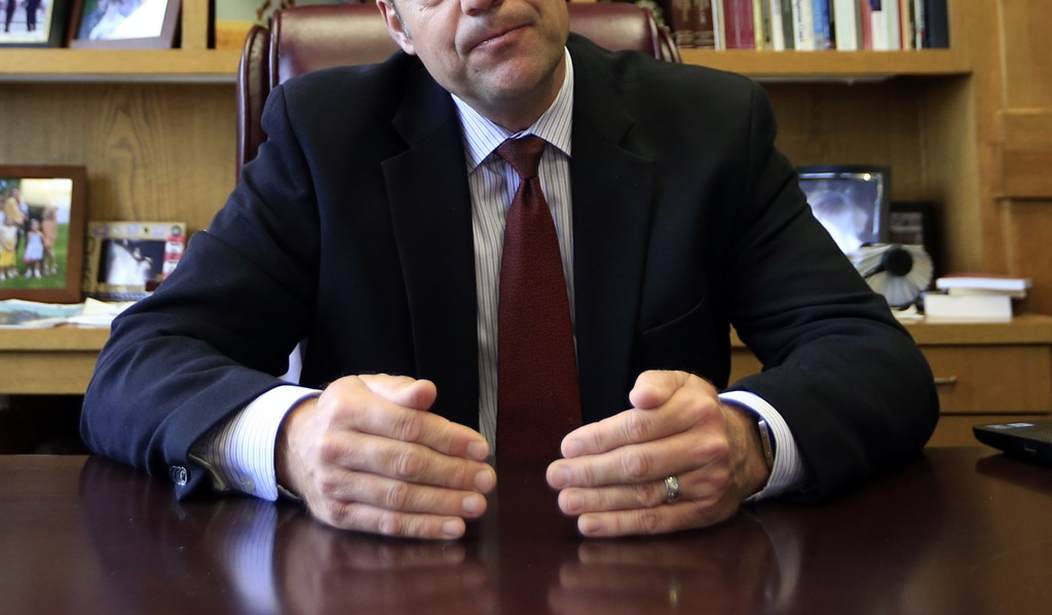Kris Kobach, Kansas secretary of state and operational leader of the Commission on Election Integrity, responded Wednesday to a letter House Democrats sent to Vice President Mike Pence requesting that Kobach resign, saying he falsely claimed voter fraud exists and that he is advertising his work on the commission to promote his campaign for governor. They also claim the commission will result in voter suppression.
Kobach called the criticism “ridiculous,” in a CNN appearance prior to the commission’s first meeting.
“First of all, they allege that somehow I’m not qualified because I’ve pointed out widespread voter fraud in my own state of Kansas,” he said. “We’re litigating our proof of citizenship requirement when you register to vote and we’ve presented to a U.S. district court 128 cases of non-citizens who’ve gotten on the voter rolls…or who have attempted to get on the voter rolls and I’m simply saying that in my state we have discovered a problem.”
“No commission has ever looked at it from a nationwide perspective,” Kobach added, “and so the other thing they claim is that somehow a commission studying this issue results in voter suppression so to try to decipher that for you I think they’re saying if a commission studies the problem in Washington, D.C., somebody out in California is going to decide not to vote some November.”
“That doesn’t even make sense,” he said, “and in their letter they don’t even explain what is really a ludicrous argument.”
“The commission is not set up to prove or disprove President Trump’s claim,” Kobach continued. “This commission is looking at real figures, real numbers, real voter roles and real cases, not just doing surveys. That’s the real difference.”
Recommended
Another letter, signed by 70 lawmakers, was sent to Kobach asking him to withdraw his request for voter registration data due to privacy and security concerns.
Kobach emphasized that the information they were asking for is "publicly available data rolls."
“The reason you need that information is to do things like if someone comes before the commission and says 100 people voted in this state in this election year, and we believe they were deceased at the time the ballots were cast, we can look at the voter rolls and say those people were not actually registered at the time,” Kobach explained. “The commission is simply to put facts on the table.”
Kobach also cited an October 2016 Pew study estimating that there were 1.8 million deceased registered voters, saying his data request would provide actual numbers rather than just an approximation.

























Join the conversation as a VIP Member